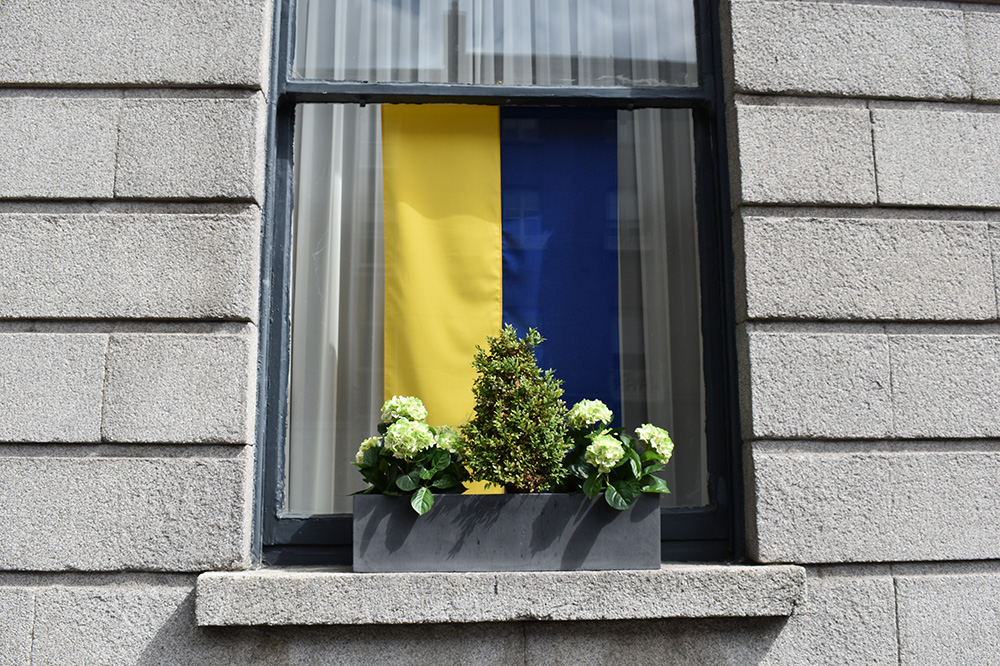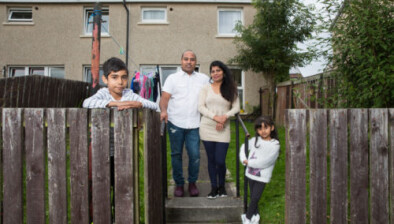Robina Qureshi: Homes for Ukraine - six months on

The Homes for Ukraine scheme began six months ago
Six months since the beginning of the Homes for Ukraine scheme, Robina Qureshi, CEO of Positive Action in Housing, a refugee homelessness charity which began the Room for Refugees Network in 2002, argues that the initiative has corrupted the concept of refugee hosting.
The Homes for Ukraine has corrupted the concept of refugee hosting in two ways; first, it has caused people to turn to social media to find each other, so sexualised images of women and girls looking for rooms has become the norm on these sites, this we do not recommend. Talk to charities like ours that run hosting networks and are robust in safeguarding, assessment and matching.
This risk was highlighted by an early notification warning (ENW) by Europol when the scheme was first launched. Hosts and refugees were driven to find each other on social media without checking. The ENW pointed out that traffickers of Labour, sex and organs use social media as their business model for targeting vulnerable people. What is shocking is that government minister Michael Gove stood up in Parliament in March 2022 and actively encouraged people to find each other on social media when he launched it.
Second, Homes for Ukraine corrupted the hosting model by introducing the concept of a payment for hosting. Refugee hosting models do not involve payment, and a stable hosting arrangement is often one where money is not the motivating factor for the host. We know this to be accurate, having accommodated over 4,000 refugees successfully with risk assessments in place. We have been running this programme since 2002, and under our Ukraine programme have successfully matched almost 400 hosts and refugees, with over 2000 refugees still waiting to be matched in the UK.
The Homes for Ukraine scheme did not consult experts, nor did it consider that thousands of people could be at risk of homelessness after the media frenzy around hosting war refugees died down. Hosting someone in your home is not a temporary thing; it is not fashionable, it is not virtue signalling; in essence, it involves a private arrangement, done privately and with dignity; it involves processing grief and loss and not knowing what the future holds. Anything built on a self-congratulatory media frenzy is bound to crumble. And we understand that as many as half of all hosts have changed their minds since the launch. What the government should have done is engage with experts in the field and let us develop and deliver the concept.
Millions of refugees have been hosted worldwide for decades; take Pakistan or Turkey, which took almost ten million refugees. This country was not the first and has taken the least compared to European countries.
The government failed to consult or engage with experts in the field. Yet we constantly asked Home Secretaries from Theresa May onwards to work with us to provide refugee hosting so that we could provide homes for Syrians, Iraqis, Afghans, Yemenis and others.
Our concern now is impending homelessness. Without a viable system in place, Homes for Ukraine will inevitably result in rising numbers of homelessness amongst Ukrainians. The cost of living is one factor, but the absence of a viable assessment, matching and host management system means a significant number of hosting arrangements end abruptly and suddenly, with hosts feeling the strain and having no support system to extend hosting.”It is unrealistic to assume that Ukrainian refugees will move on to new accommodations when there are pre-existing housing shortages and homelessness across the country. Rent deposits are also prohibitively expensive.
The Ukraine family Scheme has also led to homelessness representations increasing because of overcrowding and resulting tensions.
In the absence of a proper thought-out system, we would encourage hosts and guests to have a conversation at least a month before the end date about when is a suitable exit date. Guests may need help to find alternative accommodation or assistance with presenting themselves as homeless to local authorities. The worst case scenario is where a host feels obliged to keep their guests in their homes without a resolution or end in sight.







